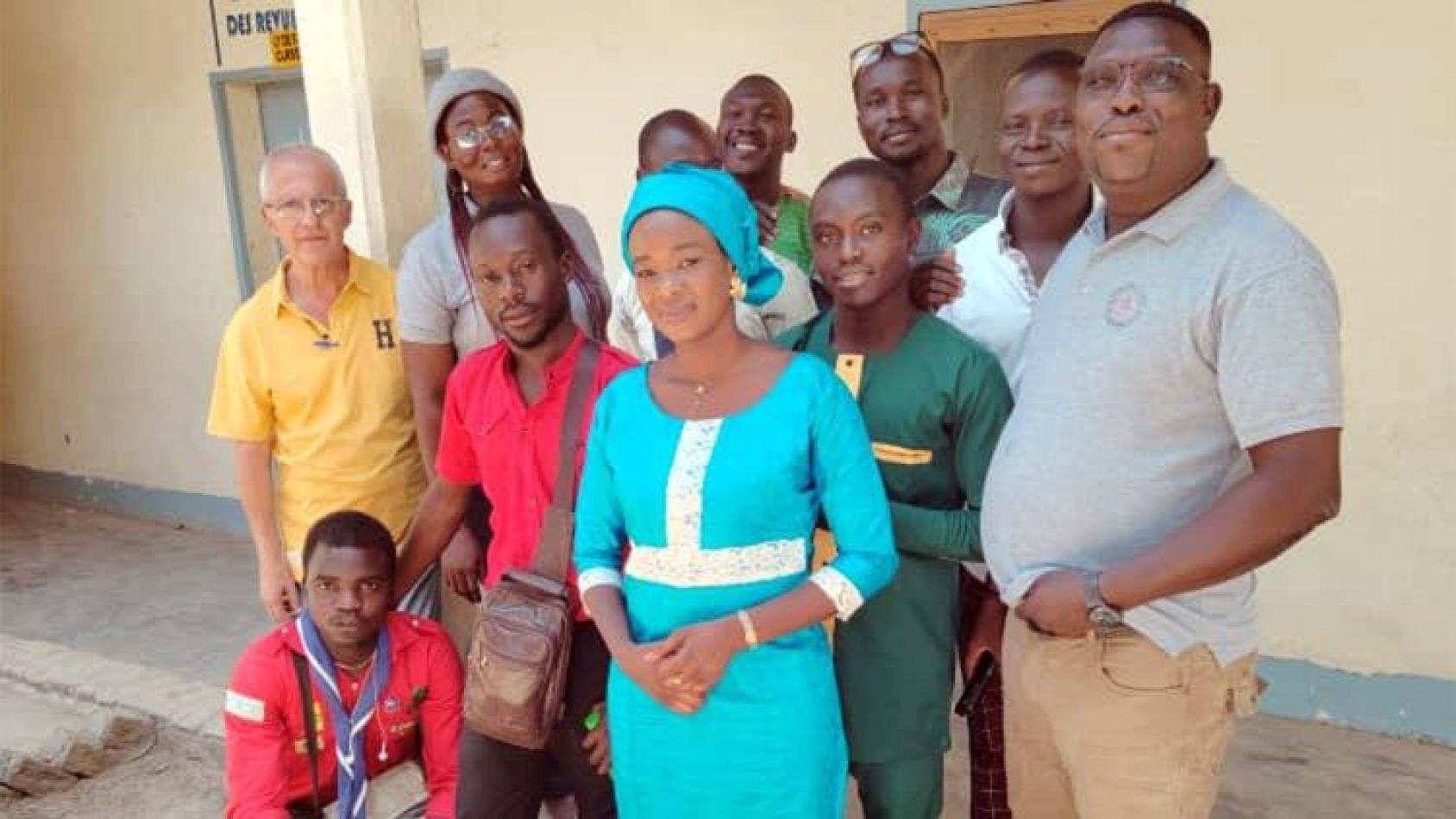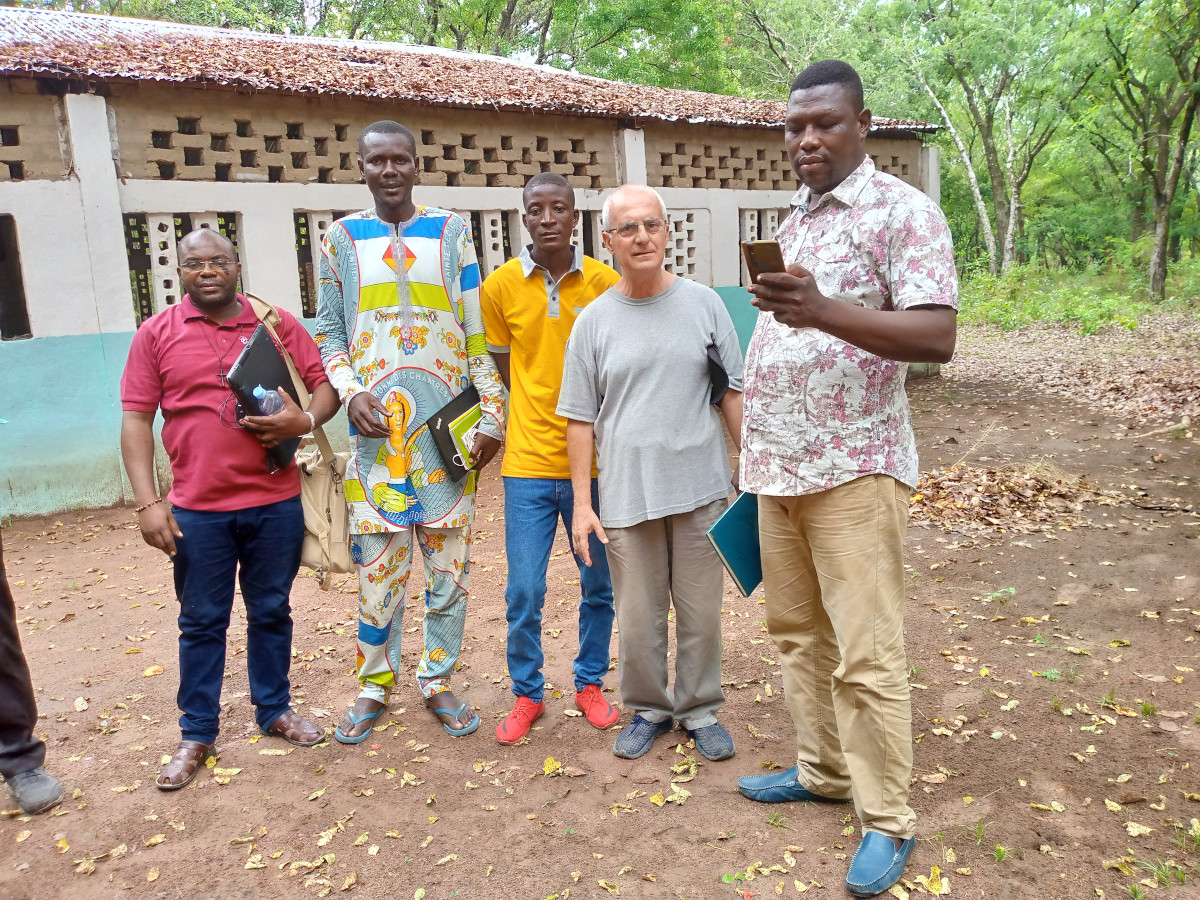Daniel Comboni
Comboni Missionaries
Institutional area
Other links
Newsletter
Saturday, September 6, 2025
What follows is a personal reflection, an attempt to take stock of a significant period in my life as a Comboni Brother. It has no other ambition than to share some of the experiences I have lived in Chad, within the Comboni communities and the local Church. [Left in photo: Brother Enrico Gonzales, mccj]
Introducing a country like Chad is not easy: the challenges are many. It is a nation in transition, moving from a predominantly agro-pastoral society toward one that seeks to insert itself more and more into globalization, with all its limitations but also its many possibilities.
Chad is a multiethnic and multireligious country. The elites who, in the 1960s, led the nation to independence from France came mainly from the south. After bloody years of civil war, power shifted to northern groups, in particular to a single ethnic group that, in practice, “seized” the political dynamic. Access to administrative and leadership positions remains limited and conditioned: today there is greater diversity than in the past, but the top positions are still almost exclusively held by the Zaghawa (and partly the Gorane), who are either Muslim or have converted to Islam.
The different cultural, political, and religious traditions of the Chadian peoples weigh heavily on social life, especially at the crucial moments of existence: birth, education, marriage, and death. I do not claim to have seen or understood everything during these years. I have lived in very different contexts in a country made up of villages and a few urban centres, which, like the capital N’Djamena, attract above all the young. Inevitably, my perspective has been that of someone who has known Chad mainly through its cities.
N’Djamena, the political and administrative capital since independence, is experiencing chaotic urban growth. New neighbourhoods have sprung up in the south like mushrooms, in areas that until recently were uninhabited, creating a disordered and overcrowded urban fabric. The historic heart of the city stretches along the Chadian banks of the Chari River. After the destruction of the civil war, the northern areas also experienced strong demographic growth, marked by a predominance of Muslims. The result is a kind of spatial and religious apartheid: the northern districts are almost entirely Muslim, while the central and southern ones are inhabited mainly by Chadians from the south, most of whom are Christian.
The Comboni community is located in Am Ruguebe, a predominantly Muslim district. I lived there for six years, at the ‘Tent of Abraham’, a centre for dialogue with Islam and for the formation of young people. They were intense and beautiful years, which allowed me to encounter a reality that was new to me (I had previously lived in Sudan and Egypt).
Later, I was asked to move to Abéché, in the northeast of the country, considered the ‘cradle’ of Chadian Islam. Located along the ancient caravan route to Egypt, Libya, and Sudan, it remains today an important commercial crossroads. I recall a striking image: not far from the parish there is a large open space where camel caravans once stopped, which today hosts dozens of trucks loaded with goods. The truck has replaced the dromedary.
Abéché was once the capital of the Sultanate of Ouaddai, a political-religious entity of great importance. The French managed to subdue it only with great difficulty, and even then, only formally. Until the 1960s, the region remained under military administration.
We Comboni missionaries are responsible for the parish of St. Thérèse of the Child Jesus, which belongs to the Apostolic Vicariate of Mongo. Its territory stretches as far as Sudan, Libya, Niger, and Nigeria. One peculiarity of our presence is the dispersion of Catholic communities: over the years, due to internal migration, the search for education (Abéché hosts two universities), and access to social services, small Catholic groups have formed in different places.
Abéché is a dynamic city, a hub of both legal and illicit trade. The ongoing conflict in nearby Darfur has generated a grave emergency: around one million Sudanese have taken refuge in Chad. Despite the efforts of UN agencies and international NGOs, the living conditions of the refugees remain on the edge of survival.
Visiting the Catholic communities, I was struck by their vitality: a simple, concrete faith, lived out despite the challenges of distance and mobility. As for Chadians in general, they are not a people of large-scale emigration. There are diaspora communities in France, Canada, the United States, and Italy, but most students who study abroad return home. The Arabian Peninsula also attracts workers and professionals, yet migration rates remain lower than those of neighboring countries.
Chad is changing slowly but irreversibly. Even an outside observer can easily notice how social norms are being transformed under the influence of global culture, the culture of “everything immediately.” It is visible in clothing styles (especially among young women), in language (increasingly influenced by social media, especially TikTok and Facebook), and in family relationships. Religion – both Islam and Christianity – remains deeply felt and practiced, yet even here a certain formalism is spreading: Catholics are proud to declare themselves as such, while Muslims express their faith by attending Friday prayers and upholding traditions.
In these ten years, lived in two realities that are both similar and different, I have been able to meet people of great goodwill, capable of facing difficulties with courage and faith in the Lord of Life.
For now, I leave Abéché and Chad with my heart full of faces, experiences, and memories, in the hope of one day returning.
Brother Enrico Gonzales, mccj
Abéché, September 2025





